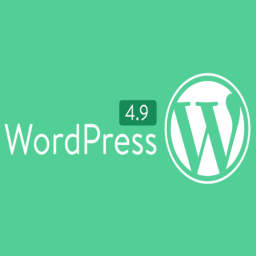Release Announcement: WordPress 5.1 Betty

A Little Better Every Day
WordPress 5.1 Betty is now available, since Thursday night, February 21, 2019. Version 5.1 of WordPress, named “Betty” in honour of acclaimed jazz vocalist Betty Carter, is available for download or update in your WordPress dashboard.
Following WordPress 5.0 — a major release which introduced the new block editor — WordPress 5.1 Betty focuses on polish, in particular by improving the overall performance of the editor. In addition, this release paves the way for a better, faster, and more secure WordPress with some essential tools for site administrators and developers.
Your WP up-to-date and never better: Experience the Safe & Secure sensation with recurrent WordPress Maintenance from owl power.

Site Health
When installing new plugins, WordPress’s Site Health features will check whether a plugin requires a version of PHP incompatible with your site. If so, WordPress will prevent you from installing that plugin.Learn more about updating PHP

Editor Performance
weekly WordPress maintenance: Maintain your WordPress in pristine condition with owl power!
WordPress 5.1 Betty = Developer Happiness
Multisite Metadata
WordPress 5.1 Betty introduces a new database table to store metadata associated with sites and allows for the storage of arbitrary site data relevant in a multisite / network context.
Read more.
Cron API
The Cron API has been updated with new functions to assist with returning data and includes new filters for modifying cron storage. Other changes in behaviour affect cron spawning on servers running FastCGI and PHP-FPM versions 7.0.16 and above.
Read more.
New JS Build Processes
WordPress 5.1 Betty features a new JavaScript build option, following the large reorganisation of code started in the 5.0 release.
Read more.

Other Developer Goodness
Miscellaneous improvements include updates to values for the WP_DEBUG_LOG constant, new test config file constant in the test suite, new plugin action hooks, short-circuit filters for wp_unique_post_slug()and WP_User_Query and count_users(), a new human_readable_duration function, improved taxonomy metabox sanitation, limited LIKE support for meta keys when using WP_Meta_Query, a new “doing it wrong” notice when registering REST API endpoints, and more!
Read more.
Keep it Classic
Prefer to stick with the familiar Classic Editor? No problem! Support for the Classic Editor plugin will remain in WordPress through 2022. The Classic Editor plugin restores the previous WordPress editor and the Edit Post screen. It lets you keep using plugins that extend it, add old-style meta boxes, or otherwise depend on the previous editor. To install, visit your plugins page and click the “Install Now” button next to “Classic Editor”. After the plugin finishes installing, click “Activate”. That’s it!
Note to users of assistive technology: if you experience usability issues with the block editor, we recommend you continue to use the Classic Editor.
Protect your WordPress: BEFORE IT'S TOO LATE! You will also protect your customers, your reputation and your online business!
Do you have any feedback about this WordPress 5.0.3 update? Leave your thoughts in the comments below!
We’re passionate about helping you grow and make your impact
Continue being informed
Monthly vulnerability reports about WordPress and WooCommerce, plugins, themes.
Weekly inspiration, news and occasional with hand-picked deals. Unsubscribe anytime.








